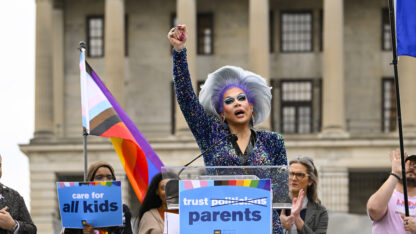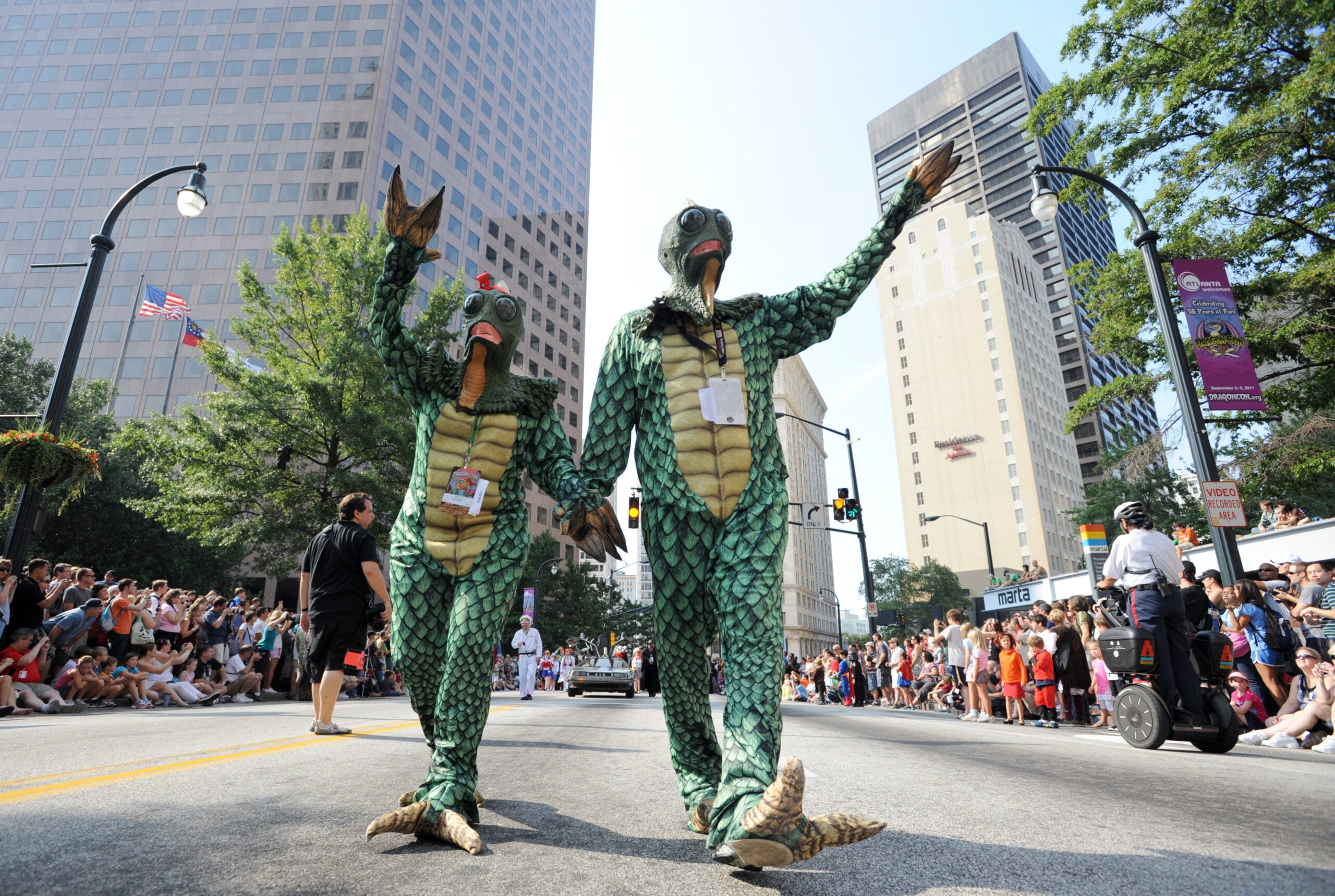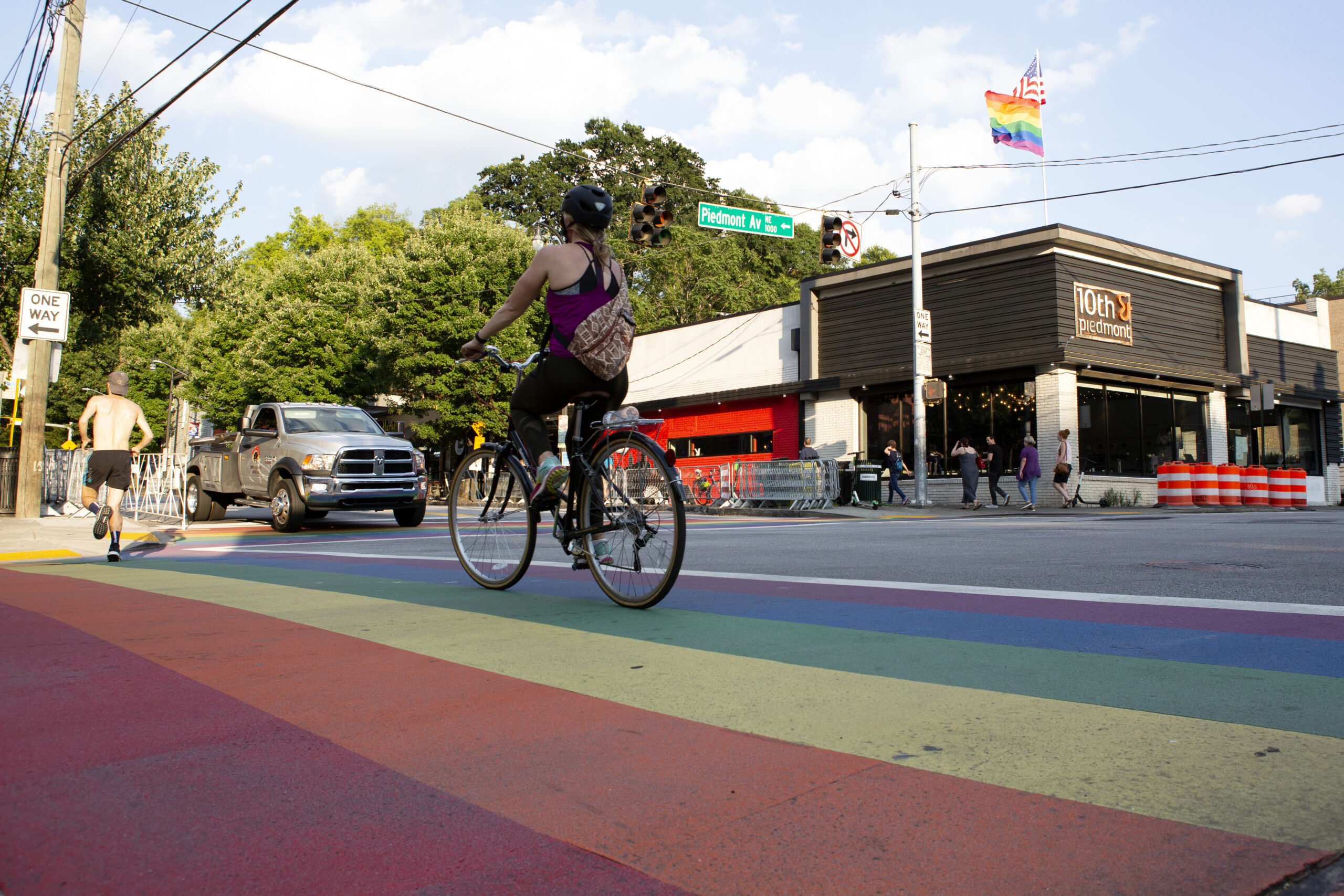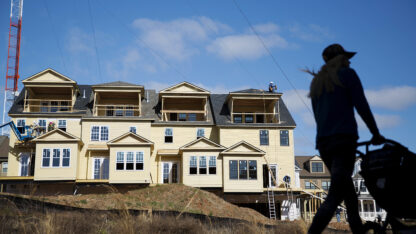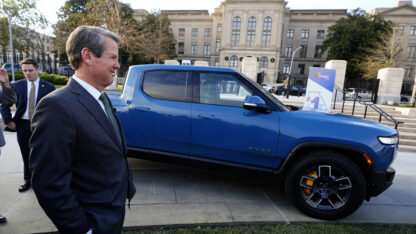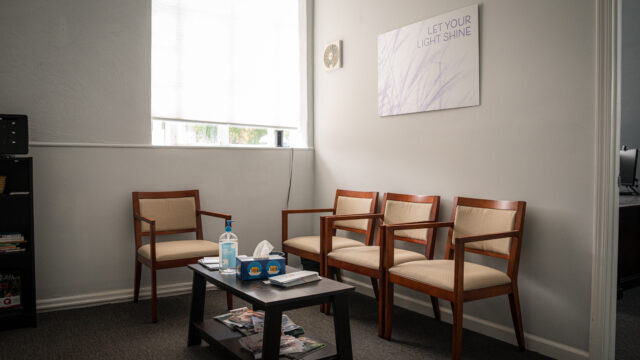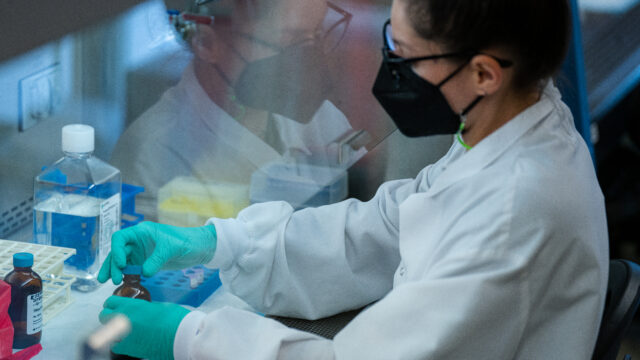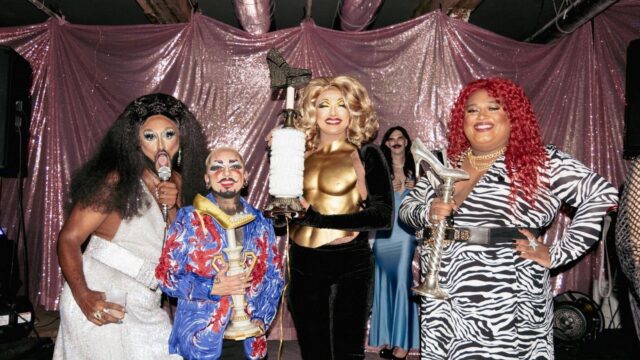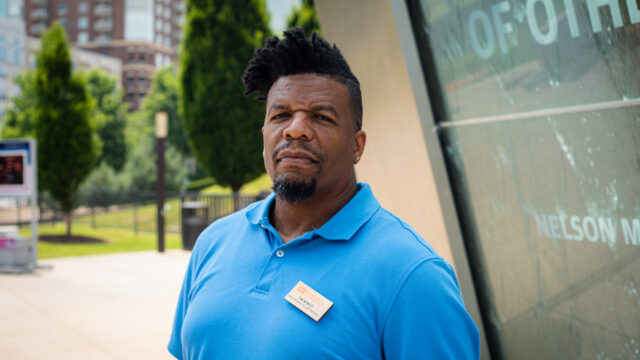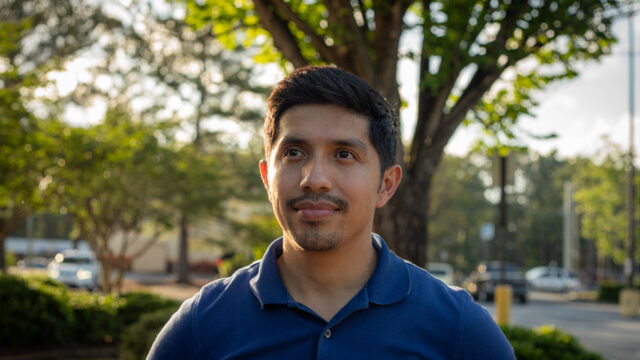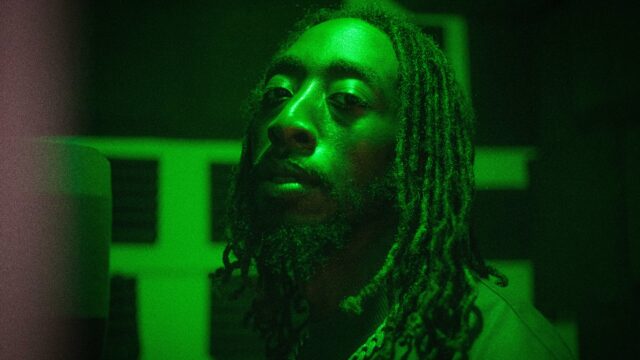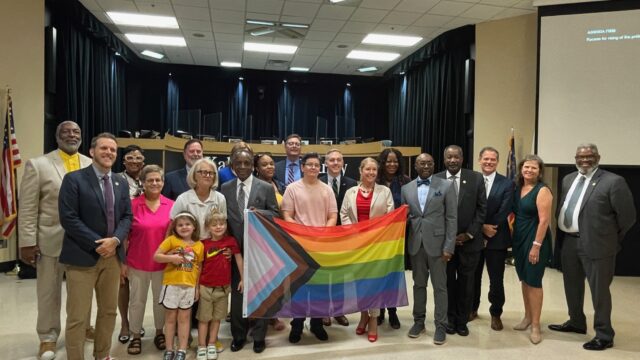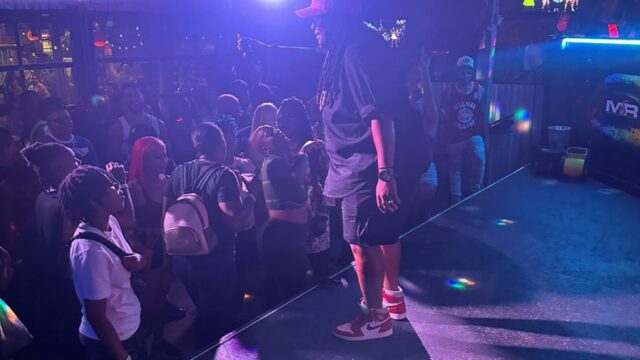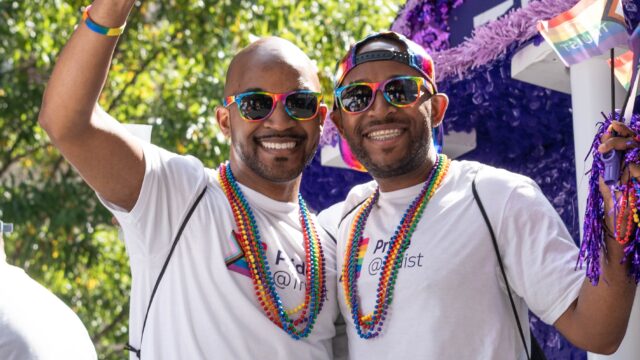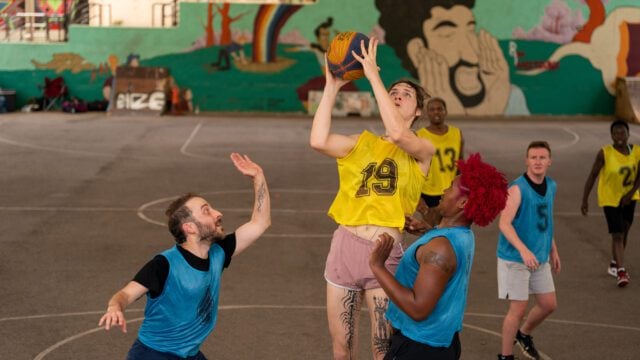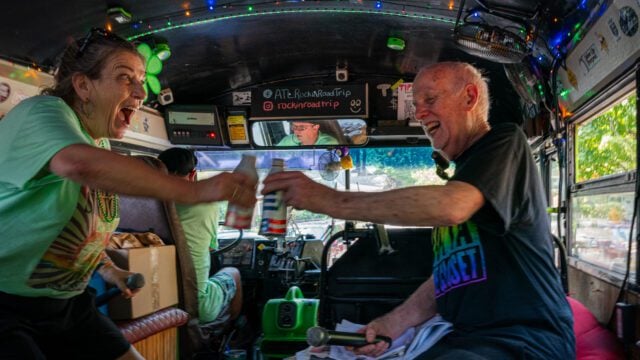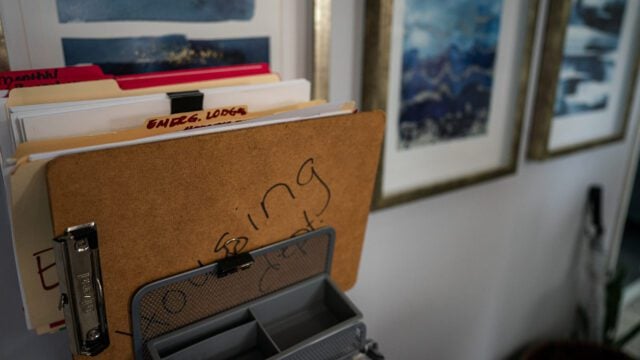Atlanta is known as a mecca for the Black queer community. The city is also an epicenter for the genre of hip-hop, but LGBTQ rappers do not have it as easy as their straight counterparts.
Joshua Burroughs, better known by his stage name JoshuaTikeen, spends a recent evening in Little Five Points. He’s shooting a music video for his newest song.
As the music plays, the videographer hypes him up with excitement. Burroughs is lean, standing at 6 feet, 5 inches tall with shoulder-length locs.
The Little Five Points area is a place where he starts to reminisce. He says being there is like a full-circle moment.
“I actually did one of my first photo shoots here. So it’s kind of one of those bubbly moments for me to be doing one of my first pull up to the mics. It’s kind of surreal,” Burroughs said.
“I can’t stay stuck on what society may deem as what’s acceptable or the mold for this type of rapper.”
Joshua Burroughs aka JoshuaTikeen
Burroughs has been making music professionally since 2019. He says his musical talents come from his Southern upbringing between Georgia and North Carolina.
Burroughs says he’s experienced various kinds of prejudice since starting his career, including the industry questioning his being bisexual.
“If I were to present myself to a record company, I’m confusing to them. To them from the outside, [it’s like] ‘Okay, we can market you sexually to women, but people might not believe that you mess with guys or that you like guys,’” he said.
Fifteen minutes north of Little Five Points in Midtown, the lesbian bar My Sister’s Room is gearing up for a night of Friday night fun.
Hip-hop artist Brittany Allen is an occasional host and performer at the bar. She’s lesbian and goes by the stage name Bryttain.
“This is the only lesbian bar in Atlanta, but we do have everybody from every community man, people coming here to have a party, it’s a good vibe,” she said.
Allen is tall and athletic with her hair shaven low. She grew up in New York as a first-generation Jamaican-American.
“I’m born and raised in church. My mother’s very, very old school Caribbean. Old school Christian. Old time religion. She had a Bible in her hand when she found out,” she said. “I went through hell and back pretty much.”
Soon after she moved and settled in Atlanta, she started making music. She says the lack of queer representation in hip-hop creates challenges.
“When you’re a woman and you’re an artist, it’s already hard for you in the industry. So when you’re in the LGBT community, it is like two steps down,” she said. “You don’t see many homosexual artists. And if they are, a lot of them keep it on the down low because they don’t want it to affect their career.”
“Why is it an issue if someone chooses to love this or like that? Why should it deflect or take away from the talent that they have? It’s not built for us. So it’s hard.”
Brittany Allen aka Bryttain
Allen has gained her own audience independently through music and shows, but she says it’s long overdue for the industry to show more support to queer artists.
“Why is it an issue if someone chooses to love this or like that? Why should it deflect or take away from the talent that they have? It’s not built for us. So it’s hard. But like I say, lately a lot has been changing, though,” she said.
Burroughs is hoping to reach newer generations through his music because he’s seeing changes too.
“There’s a much younger audience that is very accepting, and they are looking for those type of musicians — they are looking for somebody that they can relate to,” he said. “So I can’t stay stuck on what society may deem as what’s acceptable or the mold for this type of rapper.”
In light of the 50th anniversary of hip-hop this year, these artists are hopeful that the genre will grow and accept more queer entertainers despite its historic lack of inclusion for the LGBTQ community.
This story is part of the ongoing series Beyond Pride, in which WABE reporters take a deeper look at the issues affecting LGBTQ people in Georgia. Plus, hear LGBTQ Atlantans in their own words, check out a Pride events calendar running through the fall, LGBTQ coverage from other NPR stations across the South and more.

